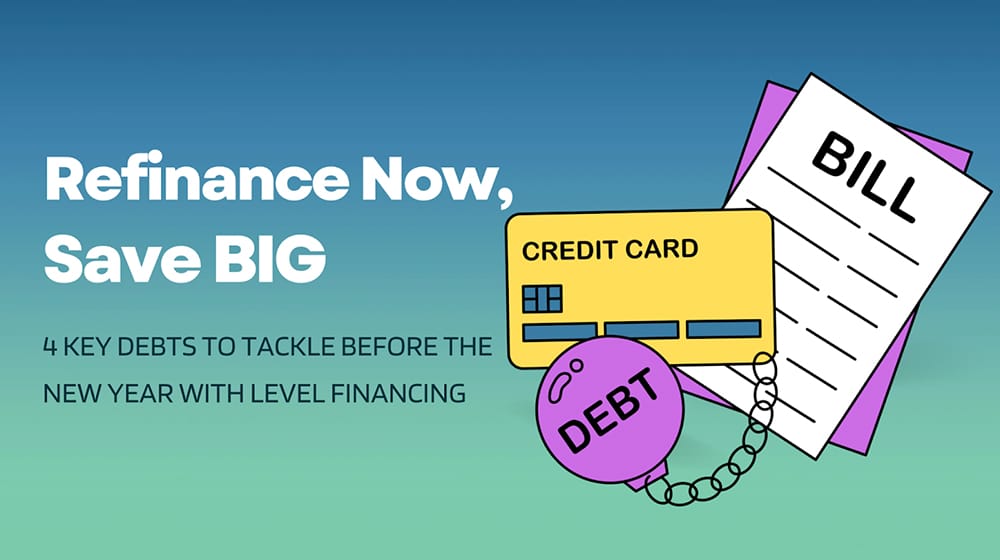While exciting, starting a business is not always an easy task. In addition to requiring dedication, and hard work, it usually requires startup capital too.
When looking for a start up loan or other forms of funding, entrepreneurs usually resort to banks or other lenders. Some may ask themselves whether taking out a personal loan can be the right move in this case. Keep reading and find out.
Advantages of Using a Personal Loan to Start a Business
Easy Application Process
For entrepreneurs just starting out, personal loans are an ideal financing option as they don’t require collateral or a lengthy application process. Moreover, several loan providers offer speedy online applications that enable you to submit your request quickly.
Flexibility
Personal loans also offer flexibility when it comes to repayment terms. Most lenders allow borrowers to customize their repayment plans based on their budget and financial goals. For instance, your can typically choose between fixed and variable interest rates, as well as different payment frequencies.
Lower Interest Rate
While APRs for unsecured personal loans can vary from 6% – 36%, they tend to be lower than credit cards and other forms of borrowing on average. Moreover, lenders sometimes offer discounts if you sign up for automatic payments. Online lenders, in particular, tend to have very attractive interest rates due to the lower overhead costs compared to traditional lenders.
Easy Refinancing
Personal loans are typically easy to refinance. For example, if your credit score has improved since the day you took out a personal loan, you can now take out a new personal loan at a lower interest and roll over your previous debt.
Key Takeaway: Using a personal loan to start a business can be an attractive option for entrepreneurs without access to other financing forms. The process of obtaining a personal loan is often simple and can provide flexibility with repayment terms, as well as a low interest rate compared to other credit options, especially if you resort to an online lender.

Disadvantages of Using a Personal Loan to Start a Business
A personal loan may seem like a viable solution for launching a business, but it is essential to consider the potential drawbacks before settling on any choice.
Risk of Defaulting on the Loan
Failing to repay a loan can have serious repercussions, including negatively impacting your credit score and hampering future financial opportunities. The potential for incurring financial distress can be amplified if, due to unanticipated circumstances like decreased sales or added costs, you are unable to meet the payment requirements.
Cap on the Total Amount
A personal loan may have a cap on the amount that can be borrowed, contingent upon one’s creditworthiness and other criteria determined by lenders during their assessment. This means that if you need more funds than what’s available through this type of financing solution, then it might not be suitable for larger businesses requiring significant capital investments upfront.
Weighing up the cons of using a personal loan for business purposes is critical before taking any action. Still, if you’re sure you can fulfill the prerequisites for such a loan, then learning how to be eligible for one could aid in launching your business.
Key Takeaway: Obtaining a loan to finance an enterprise can appear desirable, yet it involves substantial hazards such as defaulting and paperwork that is time-consuming. Additionally, there are often limits on how much you can borrow, which may not be suitable for larger businesses requiring significant capital investments upfront.
How to Qualify for a Personal Loan to Start a Business
Let’s now consider the main criteria used by lenders when deciding whether to accept your personal loan application or not.
Credit Score Requirements
Generally speaking, most lenders require borrowers to have at least good credit scores (650+). Having bad credit can significantly reduce your chances of being approved and increase the interest rate on any loans you may be offered. In addition, if you lack a good credit history, certain lenders may necessitate supplementary evidence demonstrating your capability to deal with debt prudently before consenting to the request.
Income Requirements
Lenders want assurance that their money is going towards someone who has the means to pay back their loan on time and in full. As such, many require applicants to provide evidence that they make enough money each month after taxes and other expenses are considered. This could include bank statements showing consistent deposits from employment or self-employment income sources over time as well as documents verifying current job status, like pay stubs or letters from employers detailing salary information.
Debt-to-Income Ratio
Your debt-to-income ratio indicates the percentage of monthly income that goes towards repaying debt. Keeping it as low as possible can significantly increase your chances when it comes to personal loan applications.
Key Takeaway: When applying for a personal loan, knowledge of a lender’s credit score and income criteria is important. A good credit score (650+), proof of consistent income, and a reasonably low debt-to-income ratio are typically necessary in order to get approved; collateral may also be required depending on the lender.

Alternatives to Using a Personal Loan to Start a Business
A personal loan application is not always successful. Fortunately, other financing methods exist for those wanting to fund their venture without resorting to a personal loan.
Crowdfunding platforms provide an alternative way of raising capital for businesses without taking out a loan or issuing equity shares. Platforms like Kickstarter allow entrepreneurs to set up campaigns to pitch their ideas directly to potential investors in exchange for donations or rewards-based investments.
Small business loans are another option for entrepreneurs who want more control over how much money they borrow and when they repay it back than what crowdfunding offers them. These loans, typically offering lower interest rates than personal ones, necessitate collateral such as real estate or equipment to be eligible. They also tend to have longer repayment periods which makes them ideal for businesses that need larger amounts of money upfront but may not be able to generate enough revenue right away in order to pay back what they owe immediately after receiving funds from lenders.
Finally, angel investors offer another form of financing that doesn’t involve taking out any kind of loan at all. Depending on how much you raise from these individuals or groups (which usually range anywhere between $25k-$500k), you may have to give up some degree of the ownership stake in your company. Angel investors provide capital upfront with no strings attached so long as you meet certain milestones within specific time frames. This makes them particularly appealing if you already have an established customer base and just need additional resources to help scale your operations quickly while minimizing risk exposure along the way.
Key Takeaway: Though personal loans may offer lower interest rates, the associated risks, and lengthy application processes should be considered before taking this route to finance a business. Alternatives such as crowdfunding platforms, small business loans, and angel investors offer ways to finance businesses without having to take out a personal loan while still minimizing risk exposure.
Can I make a personal loan to my LLC?
No, making a personal loan to your LLC is not recommended. Doing so could create tax and legal complications that may be difficult to resolve. Moreover, if the funds from such a loan are considered taxable income for you as an individual, it could cause complications with the IRS. It is prudent to converse with a financial specialist and bookkeeper prior to settling on any choices regarding loans or ventures, including your LLC.
Can I get a personal loan to use as a down payment for a business loan?
Employing a personal loan as a deposit for an enterprise credit may be feasible. Before committing to such an arrangement, it is critical to thoroughly evaluate the details of both loans. Generally speaking, lenders will prefer that you make at least some kind of down payment on the business loan in order to reduce their risk. It is also important to factor in interest rates and repayment schedules when deciding whether or not this option makes sense financially. Ultimately, if done correctly, using a personal loan as part of your business financing strategy can be beneficial, but it should always be considered carefully with all factors taken into account.
To Sum It Up
Initiating a business may appear intimidating, yet with suitable arranging and readiness. It can likewise be incredibly gratifying. Personal loans offer an attractive option for those looking to start their own venture as they provide access to funds quickly and easily.
Before making any decisions, the potential drawbacks of taking out a personal loan should be taken into account. Prior to settling on a choice, it is essential to evaluate all possible alternatives cautiously so you can guarantee that the picked arrangement best meets your necessities.
Ultimately, if used correctly and responsibly, personal loans could prove invaluable in helping you successfully get your business off the ground – just make sure to do thorough research first.
Apply for a personal loan to start your business and learn the best strategies for successful financial management. Take control of your finances today!





